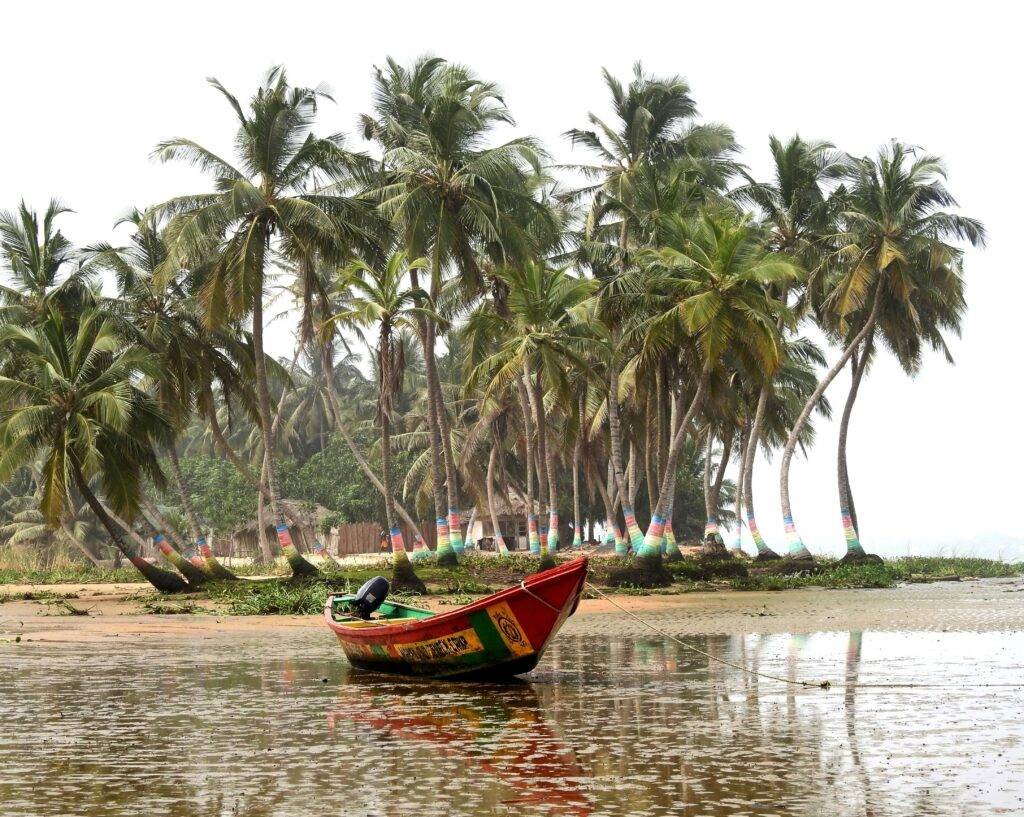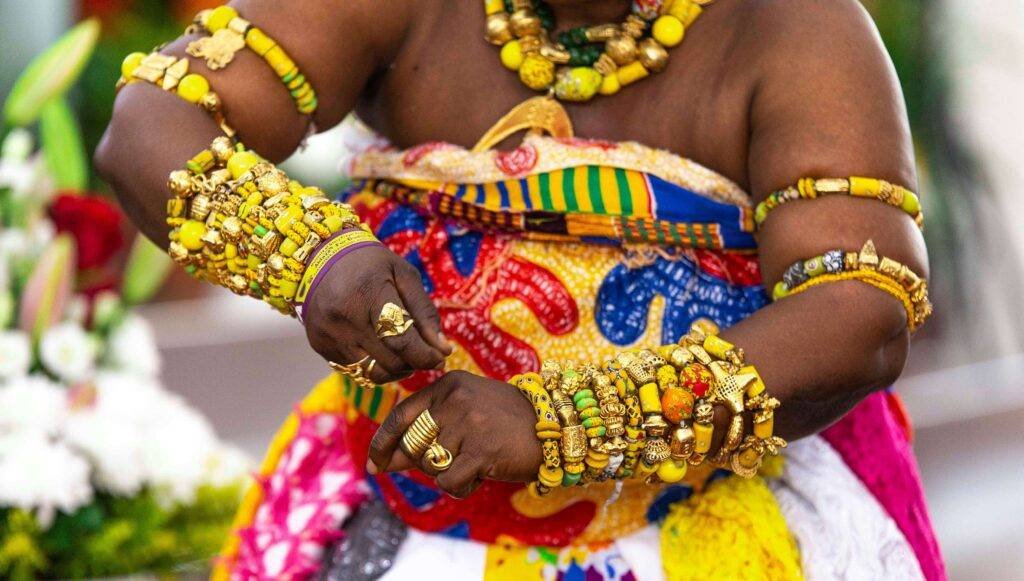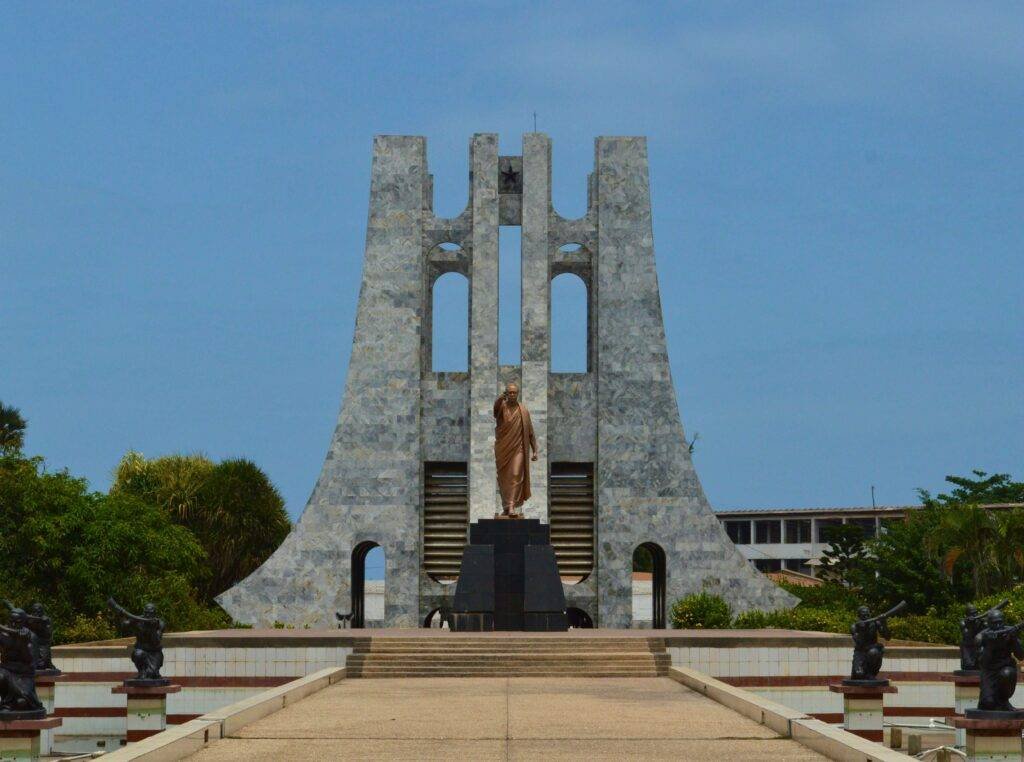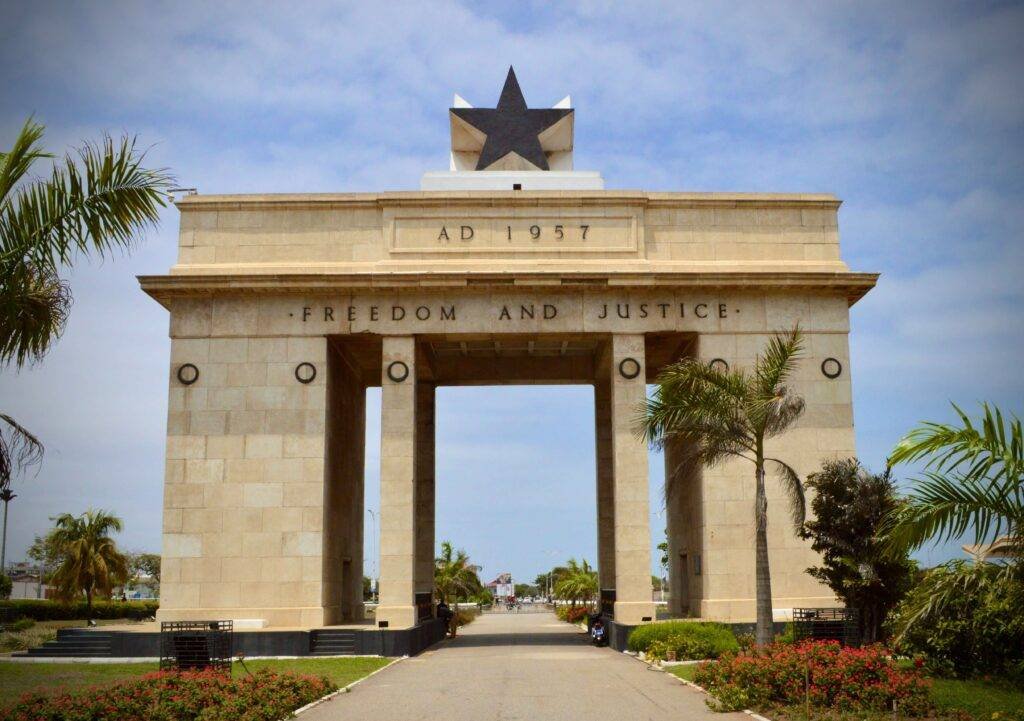Embarking on a journey through West Africa revealed a tapestry of captivating experiences, and among the gems of this adventure were Ghana and the Ivory Coast. During our travels, we spent a delightful week in each country, immersing ourselves in the rich tapestry of their cultures, savoring their delicious cuisines, and connecting with the warm-hearted locals. From the bustling markets to the tranquil shores of breathtaking beaches, our time in Ghana and the Ivory Coast left an indelible impression of hospitality, vibrancy, and natural beauty. Join me as I recount the highlights of this unforgettable exploration into the heart of West Africa.
Table of Contents
Is Ghana safe to visit?
Ghana is generally considered a safe destination for travelers. The country boasts a stable political environment, welcoming locals, and a growing tourism industry. Like any destination, it’s wise to exercise common sense and take precautions, especially in crowded areas and at night. Stay informed about local customs and regulations, and be respectful of cultural norms. By staying vigilant and following basic safety guidelines, visitors can enjoy all that Ghana has to offer without major concerns.
Introduction
Ghana is a country located along the Gulf of Guinea and the Atlantic Ocean in West Africa. With a population of over 30 million, Ghana is one of the most populated countries in West Africa.
Ghana has a rich and complex history. The area was inhabited in pre-colonial times by several ancient kingdoms and empires. In the 15th century, the area was visited by Portuguese explorers and later became a hub for the transatlantic slave trade. Ghana was colonized by the British in the late 19th century as the Gold Coast. It gained independence from Britain in 1957, becoming the first sub-Saharan African nation to break from colonial rule.

Geographically, Ghana is dominated by the Volta Basin in the center of the country, which provides water resources and hydroelectric power. Lake Volta is one of the world’s largest artificial lakes. Ghana has a diverse landscape ranging from coastal plains to forests and mountains. The climate is tropical with two rainy seasons.
Culturally, Ghana is very diverse with many ethnic groups each with their traditions. English is the official language but there are over 250 native languages and dialects spoken throughout Ghana. The largest ethnic groups are the Akan, Ewe, Mole-Dagbane, and Ga-Adangbe. Ghanaians are known for their welcoming and hospitable nature.
Some of Ghana’s most well-known cultural exports include kente cloth, Highlife music, and certain styles of drumming and dance. Ghanaian cuisine features starchy staple foods like rice, maize, millet, cassava, yams, and plantains. Signature Ghanaian dishes include fufu, banku, and kelewele.
Overall, Ghana is a vibrant West African nation with a complex history, diverse landscape, and rich culture. It provides visitors with a memorable experience.
Best times to visit Ghana
The best time to visit Ghana is generally during the dry season, which runs from November to March. January, in particular, is an excellent time to visit, as the weather is typically sunny and pleasant with lower humidity levels. During this period, you can enjoy the beautiful beaches, explore historic sites, and participate in cultural events without the interruption of heavy rainfall. My visit to Ghana in January was indeed delightful, with ideal weather that complemented the overall experience of exploring this vibrant and welcoming country.
Dry Season (November to March)
The dry season offers the most ideal weather for travel. Skies are sunny and temperatures range from 25-35°C (77-95°F). Humidity is lower, making outdoor activities more comfortable. With little chance of rain, it’s a great time for wildlife safaris, beach days, and exploring the countryside.
The peak of dry season is December to February when the Harmattan winds blow in from the Sahara Desert. The winds keep temperatures down but create very dusty conditions. If susceptible to respiratory issues, it’s best to avoid this period.
Rainy Season (April to October)
The rainy season sees hot and humid weather with heavy downpours. Temperatures are typically 27-32°C (80-90°F) with high humidity. The rain often comes as short heavy storms rather than all-day drizzles.
Travel is still feasible in the rainy season if you don’t mind getting wet. Just plan for rain delays and dress appropriately. Some dirt roads may become impassable. Prices are lower and there are fewer tourists.
Major Festivals
Ghana has many lively festivals, mostly coinciding with the dry season. Plan your travels around these events to partake in the cultural celebrations:
- Fetu Afahye Festival (September) – Harvest festival in Cape Coast
- Bakatue Festival (July) – Fish harvesting festival in Elmina
- Aboakyir Festival (May) – Hunting festival in Winneba
- Homowo Festival (May) – Harvest festival in Accra
- Akwasidae Festival (Every 42 days) – Ashanti kingdom festival
Holidays
Public holidays can cause some service disruptions. Main national holidays include Independence Day (March 6), Eid al-Fitr (June), Eid al-Adha (July), and Christmas (December 25-26).
The ideal time to visit Ghana is during the peak dry season months of December to February. But the rest of the dry season is also a great option. Avoid the humid rainy season if possible. Plan your travels to coincide with major festivals for an authentic cultural experience.
Top Destinations in Ghana
Ghana is home to many exciting destinations that should be on every traveler’s list. Here are some of the top places to visit:
Accra
Accra is Ghana’s capital and largest city. Located on the Atlantic coast, it’s a bustling urban center full of markets, museums, beaches, and nightlife. Top attractions include the National Museum, Independence Square, Makola Market, and Labadi Beach.
Cape Coast
Cape Coast is a historic seaside town known for its role in the transatlantic slave trade. The Cape Coast Castle and Elmina Castle are former slave fortresses that serve as poignant reminders of the past. Other highlights include Kakum National Park and beautiful beaches.
Elmina
Elmina is a fishing town located on Ghana’s central coast. It’s home to the impressive Elmina Castle, a UNESCO World Heritage site and Ghana’s oldest European building. Visitors can take informative tours of the castle and learn about its complex history.
Kakum National Park
Kakum National Park is a protected rainforest known for its extensive canopy walkway. Suspended 100 feet above the forest floor, the walkway provides a unique perspective of the lush tropical landscape and opportunities to spot exotic wildlife.
Mole National Park
Mole National Park is Ghana’s largest wildlife refuge and home to elephants, buffaloes, monkeys, antelopes and more. Visitors can take safaris and guided nature walks to observe the animals in their natural habitat. The park provides an authentic safari experience without the crowds.
Ghanaian Cuisine
Ghanaian cuisine has diverse flavors and ingredients. Some staples in Ghanaian cooking include:
Common Ingredients

- Plantains – Both sweet and green plantains are widely used in Ghana. They can be boiled, fried, mashed, or made into fufu.
- Yams – Different varieties of yams are grown in Ghana and used in many dishes. They provide an important source of carbohydrates.
- Cassava – Cassava is a root vegetable that is peeled, boiled and often turned into gari or agbelima. These cassava products are used to make fufu.
- Palm Oil – Red palm oil is a key ingredient in many Ghanaian soups and stews. It gives them a rich, reddish-orange color.
- Hot Peppers – Scotch bonnets and other hot peppers are commonly used to add spiciness to soups and stews.
- Tomatoes – Fresh tomatoes are used in many Ghanaian dishes. Tomato paste is also a common ingredient.
- Onions & Garlic – Onions and garlic provide aromatic flavors to Ghanaian dishes.
Popular Dishes
- Fufu – Fufu is a staple made by pounding boiled starchy foods like cassava, yams or plantains into a dough-like consistency. It is eaten with soups and stews.
- Jollof Rice – This iconic West African dish consists of rice cooked in a tomato-based sauce with spices, vegetables and meat or fish.
- Red Red – A popular Ghanaian bean and plantain stew made with black-eyed peas and palm oil.
- Kelewele – Spicy fried plantain or yam chunks, a popular snack.
- Waakye – Rice and beans cooked together with vegetables and served with shito sauce.
- Banku – A fermented corn dough often eaten with okra soup or grilled tilapia.
- Kenkey – Fermented maize dough wrapped in corn husks or banana leaves and steamed. Eaten with pepper sauce.
Where to Eat
To try authentic Ghanaian food, head to chop bars in the local neighborhoods or the street food stalls at Makola Market in Accra. Restaurants like Asaaba Local Restaurant in Kumasi also serve excellent Ghanaian cuisine. Don’t miss the opportunity to try dishes like fufu and ampesi during your travels through this amazing country.
Things to do in Accra
Accra is the capital and largest city of Ghana. It’s a sprawling metropolis with a mix of modern skyscrapers, colonial architecture, and bustling markets. Here are some of the top things to do in Accra:
National Museum
The National Museum is a must-visit to learn about Ghana’s history and culture. It houses exhibits on archaeology, ethnography, art, history, and more. Highlights include traditional Asante gold weights, ceremonial stools, tribal masks, and artifacts from ancient kingdoms. Don’t miss the slave trade display depicting the horrors of the journey across the Atlantic.
Independence Square
Independence Square is a large public square surrounded by impressive colonial buildings. It was named after Ghana’s independence in 1957 and is used for parades, rallies, and other national events. In the middle is the Independence Arch, built to commemorate the colonial rule ending. Stop by to see the towering black star monument and flame of African freedom.
Makola Market
For a true taste of African market life, head to Makola Market. This sprawling, open-air bazaar has anything you can imagine for sale from textiles, spices, produce, clothing, and more. Be prepared to haggle and take in the sights, sounds, and smells of this chaotic yet exciting shopping experience. The area around Kojo Thompson Road is considered the center.
Beaches
Accra has some nice beaches where you can relax or try water sports. Labadi Beach is popular with locals and tourists, located along the Atlantic Ocean. Kokrobite Beach is another option just outside the city, known for its art community, drumming, and reggae music. You can also check out beaches like Bojo Beach, Cliff Haven, and Turtle Bay.
Places to visit in Cape Coast
Cape Coast is a historic coastal city in Ghana that serves as the capital of the Central Region. It’s home to Cape Coast Castle and nearby Kakum National Park, making it one of Ghana’s most popular tourist destinations.
Cape Coast Castle
Cape Coast Castle is a UNESCO World Heritage site that was once one of about forty “slave castles” built on the Gold Coast. It was originally built by the Swedes in 1653 for trade and then expanded by the British in 1664 to hold slaves before they were shipped to the Americas. Visitors can take tours of the castle to learn about its complex history of commerce, colonialism, and slavery. The castle also houses the Cape Coast Castle Museum, which displays artifacts from the history of Ghana.
Kakum National Park
The park is located about 20km north of Cape Coast. It is famous for the suspended canopy walkway 30 meters above the forest floor. The 350-meter-long walkway provides a unique vantage point for viewing the diverse plants and wildlife, including over 40 mammal species and 250 bird species. Trained guides lead educational tours of the park. Visitors can also go hiking, do canopy tours, or visit nearby natural attractions like waterfalls.
Beaches
Cape Coast has several nice beaches that are popular spots to relax or engage in water sports. The main beach is located along the coastal road and offers views of Cape Coast Castle. Other beaches include Fosu Lagoon and adjoining Brenu Beach, Bakano Beach, and Princess Town Beach.
Festivals
The city hosts vibrant festivals and events throughout the year. The Fetu Afahye Festival each September showcases Ghanaian culture with street parades, drumming, dancing, arts, food, and more. Bakatue Festival in July celebrates the sea harvesting activities of the Effutu people. There’s also a vibrant entertainment scene and nightlife around the city.
Things to do in Kumasi
Kumasi is the capital of the Ashanti region and Ghana’s second-largest city. It has a rich cultural heritage and plenty of interesting attractions for visitors. Some top things to do in Kumasi include:
Visit Manhyia Palace
Manhyia Palace is the royal palace of the Asantehene, the king of the Ashanti Kingdom. Guided tours take you through the palace to see artifacts like royal antiquities, treasures, and regalia. You’ll learn about the history and traditions of the Ashanti people. Make sure to follow the dress code and etiquette when visiting.
Shop at Kejetia Market
One of the largest markets in West Africa, Kejetia Market is a fascinating place to wander. Over 10,000 retailers sell everything from traditional crafts to electronics. Haggle for souvenirs like kente cloth, wood carvings, jewelry, and more. Soak in the vibrant sounds, smells, and energy of this bustling open-air market.
See artifacts at the National Cultural Center
This excellent museum and crafts center celebrates Ghana’s cultural heritage. See traditional Ashanti regalia worn by kings, queen mother figurines, ceremonial drums, and more. There are also brass works, leather goods, pottery, and weaving demonstrations by local artisans.
Visit surrounding craft villages
The villages surrounding Kumasi specialize in traditional crafts. Visit places like Ahwiaa for wood carvings, Bonwire for kente weaving, and Ntonso for adinkra cloth printing. Interact with the skilled craftspeople to learn about their ancient handicraft methods and purchase quality souvenirs.
Kumasi offers visitors the chance to experience Ghana’s history and culture up close. Immerse yourself in the sights, sounds, and spirit of the city, and don’t miss these top attractions.
Best beaches in Ghana
Ghana is home to some of the most beautiful beaches in West Africa. The coastline stretches over 350 miles, providing plenty of options for sunbathing, swimming, surfing, and more. Here are some of the top beaches to visit:

Busua
Busua Beach is one of the best beaches in all of Africa. The golden sand shoreline, and coconut palms, make for a quintessential tropical paradise. The beach has big waves that are excellent for surfing. There are also opportunities for canoeing, fishing, and dolphin watching. At night, visitors can enjoy the lively ambiance of the nearby seaside village.
Kokrobite
Just 30 minutes from Accra, Kokrobite has become a popular weekend getaway spot. The relaxed atmosphere and affordable beach resorts draw both locals and tourists. Activities include swimming, surfing, volleyball, and eating fresh seafood. Nearby, you can also visit Kokrobite Academy, which offers drumming and dance workshops.
Cape Three Points
The southernmost tip of Ghana, Cape Three Points is where the Atlantic Ocean meets the Gulf of Guinea. The scenic shoreline features rugged cliffs, sandy coves, and palm trees swaying in the breeze. Visitors often spot seabirds and whales offshore. The Cape Three Points lighthouse, built in 1875, is a famous landmark and offers stunning panoramic views.
Keta
For a more remote beach experience, head to Keta in the Volta Region. Most visitors come to Keta for its distinctive cultural heritage and laidback fishing village ambiance. The stunning beaches provide the perfect backdrop for a tranquil getaway. With palm-fringed sands, pounding surf, charming seaside villages, and cultural immersion, Ghana’s beaches have something for every kind of traveler.
Ghana Nightlife
Ghana has a lively nightlife scene, especially in the major cities like Accra, Kumasi, and Cape Coast. Here are some of the top nightlife spots in each city:

Accra
Accra has the most vibrant nightlife in Ghana. The Osu neighborhood is the heart of the scene, with clubs, bars, and restaurants open late into the night.
- Republic Bar & Grill – Popular bar and nightclub with DJs and dancing. Occasional live music performances.
- Club Onyx – Large nightclub located in Osu. Plays hip-hop, highlife, and Afrobeat music. Gets crowded on weekends.
- +233 Jazz Bar & Grill – Intimate jazz bar with live music and cocktails. Great spot for music lovers.
- Purple Pub – Laidback pub with reggae music, cheap drinks, and a local crowd. Good for relaxing.
- Firefly Lounge – Rooftop bar with amazing city views. Cocktails, wine, and music. Upscale vibe.
Kumasi
As Ghana’s second city, Kumasi also has some fun nightlife:
- Roof Top Lounge – Lively rooftop bar located at the Golden Tulip Hotel. DJs and dancing in the evenings.
- The Vault – Popular nightclub housed in a former bank building. Plays hip hop and Ghanaian music.
- Ranch Bar – Outdoor bar with barbecue food, drinks, and occasional live bands. Relaxed atmosphere.
- Drunken Masters – Small pub known for cheap drinks and happy hour specials. Draws a young local crowd.
Cape Coast
The nightlife scene is more limited in Cape Coast, but here are some good options:
- Ocean Blu – Beachside bar and grill with bonfires at night. Relaxed place to enjoy seaside drinks and music.
- Escape Lounge – Main nightclub in Cape Coast, located on the Ekuona Hotel rooftop. Plays contemporary Ghanaian music.
- Republic Bar & Grill – Branch of the popular Accra bar, with DJs and dancing at nights.
- Panache – Restaurant with a nice bar that sometimes has live bands performing local music.
Travel tips for Ghana

Transportation
The main ways to get around Ghana are by shared taxis and minibusses called tro tros. Agree on fares beforehand and be prepared for a cramped ride. For longer distances, buses are a better option. Driving yourself is possible but can be challenging due to poor road conditions, aggressive drivers, and police checkpoints. Consider hiring a car and driver for convenience.
Safety
Ghana is relatively safe, especially in tourist areas. However, petty theft does happen, so keep valuables secured and bags closed. Avoid walking alone at night. Only take registered taxis and be cautious of scams. As a precaution, register with your embassy.
Health
Get necessary vaccinations and take malaria prevention medication. Only drink bottled water and be careful with fruits/veggies. Ghanaian hospitals have decent care but limited resources, so get travel insurance. Bring medications from home.
Money
The currency is the Ghana cedi (GHS). Have some cedi on hand but dollars and euros are also widely accepted. ATMs are common but unreliable so carry backup cash. Bargaining is expected at markets/street vendors.
Etiquette
Greetings are important. Shake hands or do a slight bow. Allow elders to initiate conversations. Dress modestly. Ask before taking photos of people. Tipping 10% at restaurants is customary.
Conclusion
In conclusion, traveling to Ghana is an enriching experience for me. The country offers a unique blend of history, culture, and natural beauty that captivates visitors. Ghana is generally a safe destination for tourists, especially during the dry season from November to March when the weather is pleasant and conducive to outdoor activities. The coastline boasts stunning beaches with golden sands and clear waters, perfect for relaxation and water sports. Moreover, the warmth and hospitality of the Ghanaian people leave a lasting impression, making visitors feel welcome and embraced by this beautiful nation. Whether exploring historic landmarks, enjoying local cuisine, or simply soaking in the serene coastal landscapes, Ghana truly offers a memorable and safe travel experience.
Don’t forget to check our latest blog post The Art of Slow Travel in 7 easy steps: How to Savor Your Digital Nomad Journey to discover a transformative approach to travel that encourages mindfulness, authenticity, and the cultivation of unforgettable experiences.
